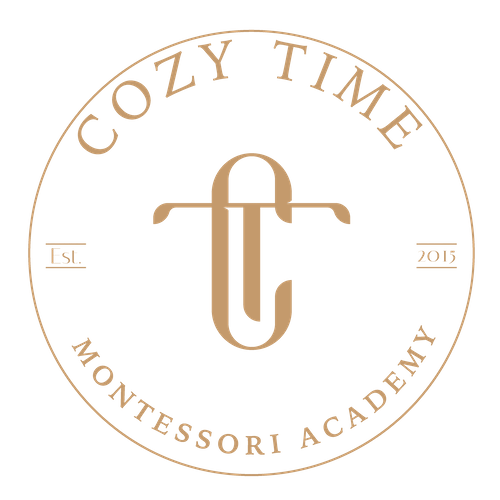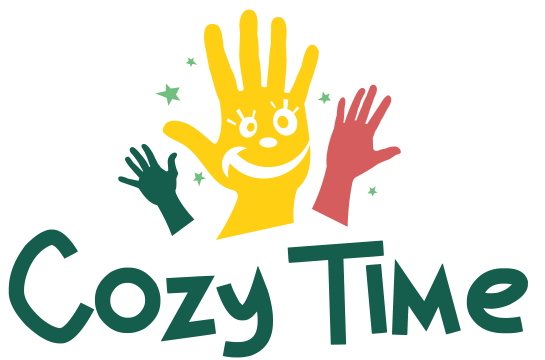Understanding Montessori Daycare
Picture this: it’s the early 1900s and a young Italian woman named Maria Montessori is observing children in the slums of Rome. She notices how the children are naturally eager to learn and how they absorb knowledge from their surroundings. Inspired by this, she develops a unique approach to education, now known as the Montessori Method. It revolutionizes the education system, not only in her native Italy but around the world. Today, it forms the foundation of what we know as Montessori daycare, a haven for many children in Toronto and beyond.
Montessori daycare is not your typical daycare. It is an environment where children are treated as unique individuals, capable of self-directed learning. It is where curiosity and creativity are cultivated, not stifled. The approach takes its roots from the philosophy of Dr. Maria Montessori, a pioneer in child-centered education. Here, the focus is on creating environments that cater to the child’s natural stages of development, thus fostering independence, love for learning, and respect for others.
The Montessori Method
Fast forward to my own experience as a parent, and I find myself standing at the doors of Cozytime, a licensed Montessori daycare center in Toronto. I was in search of a place where my child could not just be cared for, but also nurtured and educated in a way that resonates with his natural inclination to learn. I found that and more in the Montessori Method.
The Montessori philosophy is grounded in the belief that children learn best when their environment supports their natural desire to acquire skills and knowledge. This method is characterized by multi-age classrooms, a special set of educational materials, student-chosen work in long time blocks, and a trained Montessori teacher.
There are five pillars to the Montessori Method that make it unique: respect for the child, the absorbent mind, sensitive periods, the prepared environment, and auto-education. Each of these pillars plays a critical role in shaping a child’s learning experience in a Montessori setting.
A key aspect of the Montessori method, especially in daycare settings, is the child’s freedom within limits. This means children are given the liberty to choose activities that interest them, but within an environment carefully prepared to optimize their learning experiences. This fosters independence, self-discipline, and a love for learning- qualities that I, like many other parents, desired for my child.
In retrospect, choosing Cozytime, the Montessori daycare in Toronto, was one of the best decisions I made for my child. It was heartwarming to see him bloom under the Montessori philosophy, developing a sense of responsibility and self-confidence that I know will serve him well in his journey through life.
If you’re looking for a daycare in Toronto that offers not just childcare but also a holistic approach to your child’s development, consider Cozytime. You can reach out to them at (416) 602 3811 to learn more about their services and how the Montessori philosophy is integrated into their daycare programs.
Montessori Daycare: Before and After School Care
As a seasoned educator, I’ve often been asked about the workings of before and after school care in Montessori daycares, like Cozytime Child Care in Toronto. Drawing from my experiences, let me share how these programs operate. These programs are designed to extend the Montessori philosophy beyond standard school hours, providing a nurturing environment where children can explore their interests. Engaging in montessori after school activities allows children to build on their classroom learning, fostering independence and creativity. Additionally, these activities often include hands-on projects, outdoor play, and socialization opportunities that enrich their overall educational experience.
In the Montessori setting, before and after school care is more than mere supervision. It’s an extension of the Montessori philosophy, ensuring that children continue learning and growing even outside typical school hours. The environment is deliberately prepared to stimulate curiosity, creativity, and independence.
Typical Schedule in Montessori Daycare
Take, for instance, a typical day at Cozytime Child Care. Before school, children are welcomed into a calm, serene environment. They have access to Montessori materials and can engage in self-directed activities. Post-school, children continue their exploration in a relaxed setting, with opportunities for outdoor play, crafts, reading, and quiet time.
Observed Benefits
Parents often observe that their children exhibit increased self-reliance, problem-solving skills, and social awareness due to the Montessori before and after school care. The structured yet flexible schedule helps children develop time management skills, a sense of responsibility, and respect for others.
Choosing a Montessori for Your Child
As a parent, choosing a Montessori daycare like Cozytime Child Care can be an exciting yet overwhelming decision. Here are some factors to consider. Montessori daycare provides a structured yet flexible environment that fosters independence in children, allowing them to explore their interests at their own pace. Additionally, the montessori benefits for working parents include an emphasis on communication and partnership with teachers, ensuring that parents are consistently involved in their child’s development. This approach not only supports the child’s growth but also provides peace of mind for parents managing their busy schedules.
Factors to Consider
-
The school’s commitment to the Montessori Method: Are the teachers Montessori-certified? Are Montessori principles reflected in the school’s culture and policies?
-
The environment: Is it well-prepared, orderly, and inviting? Does it promote independence and offer a variety of materials for exploration?
-
The teacher-student relationship: Do teachers observe, guide, and respect the individual learning pace of each child?
Expectations from Montessori Daycare
In a Montessori daycare, you can expect a child-centered learning environment that fosters independence, curiosity, and respect for others. Children are encouraged to explore at their own pace, guided by teachers who observe and facilitate rather than dictate their learning. This approach nurtures not only academic skills but also social and emotional development, laying a strong foundation for future learning. By prioritizing hands-on activities and real-life experiences, the Montessori approach to kindergarten readiness ensures that children are well-prepared to transition into more structured educational settings. Ultimately, this philosophy promotes a lifelong love of learning that extends well beyond the classroom. This approach cultivates a love for learning that stays with children well into their future. With a focus on hands-on activities and real-world applications, parents can feel confident that their children are receiving a well-rounded education. As the method continues to evolve, there are exciting montessori daycare innovations ahead that further enhance the developmental experience for young learners.
Parental Involvement & Commitment
In Montessori, parents are viewed as partners in their child’s education. This means being actively involved in the school community, supporting your child’s learning at home, and respecting the Montessori principles of independence and self-directed learning.
A Day in the Life at Montessori Daycare
What’s it really like to spend a day at a Montessori daycare like Cozytime Child Care? Let’s delve into some personal stories and experiences.
Children’s Experiences
Children in Montessori enjoy a sense of freedom within a structured environment. They choose their activities, learn at their own pace, and develop practical life skills. They also learn to respect others, care for their environment, and solve problems independently.
Teachers’ Experiences and Anecdotes
As a Montessori teacher, I’ve had the privilege of guiding children on their unique learning journeys. I’ve seen shy children gain confidence, restless children learn to focus, and children of different ages learn from one another in a peaceful, respectful community.
Resources for Further Reading
If you’re interested in learning more about Montessori daycare, here are some resources for further reading. You can explore books and articles that delve into the philosophy and methods employed in Montessori environments. Additionally, many parents share personal experiences that highlight the montessori daycare benefits for children, underscoring how this approach fosters independence and a love for learning. Consider visiting local Montessori schools to see their practices in action and speak with educators about their curriculum.
-
Books: ‘The Absorbent Mind’ by Maria Montessori, ‘Montessori from the Start’ by Paula Polk Lillard and Lynn Lillard Jessen
-
Podcasts: ‘The Montessori Notebook’ by Simone Davies, ‘The Montessori Education Podcast’ by Jesse McCarthy
-
Websites: The American Montessori Society, The Montessori Foundation
For any further queries, you’re welcome to get connected. Feel free to reach out at (416) 602 3811.

